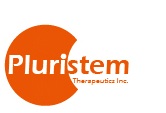
With a world-first placental stem-cell (PLX) treatment, developed by Pluristem, doctors at the Hadassah University Medical Center have saved the life of a third patient suffering from bone marrow disease.
“Following three successful treatments, which were conducted for the first time in the world at the Hadassah Medical Center,” relates Prof. Reuven Or, Director of Hadassah’s Bone Marrow Transplantation and Cancer Immunology Department, “we can say that PLX cells from the placenta saved the life of patients suffering from bone marrow failure. We are very encouraged by the results and hope that future clinical trials will show the effectiveness of the PLX cells. I believe that the PLX treatment holds huge hope for patients who suffer from different conditions of bone marrow failure and, once approved, will be available for every patient who needs it.”
This most recent patient, a 45-year-old man who has acute myeloid leukemia, a form of blood cancer, had undergone chemotherapy and an unrelated bone marrow transplant, but still suffered from a life-threatening shortage of white blood cells. After receiving two intramuscular injections of the placental stem cells, one week apart, his clinical condition and overall well being improved significantly enough for him to be released from the hospital.
In addition to helping the three patients, Pluristem Chief Executive Officer Zami Aberman notes, the data suggests that the PLX cells may be helpful in rescuing both bone marrow transplant failures that were allogeneic (genetically different) as well as autologous (from the patient’s own cells). Read more about the treatment.
